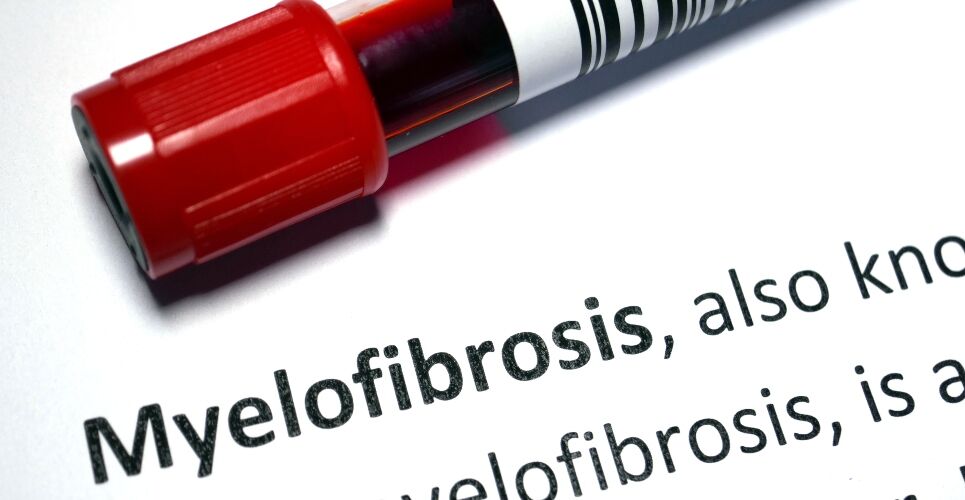The Janus kinase (JAK) inhibitor momelotinib has received a positive opinion from the European Medicines Agency‘s Committee for Medicinal Products for Human Use (CHMP) for use in certain myelofibrosis patients, its manufacturer GSK has announced.
Momelotinib has been recommended for the treatment of disease-related splenomegaly or symptoms in adult patients with moderate-to-severe anaemia who have primary myelofibrosis, post polycythaemia vera myelofibrosis or post-essential thrombocythaemia myelofibrosis and who are JAK inhibitor naive or have been treated with ruxolitinib.
If approved, momelotinib (proposed brand name Omjjara) would be the only medicine in the European Union specifically indicated for both newly diagnosed and previously treated myelofibrosis patients with moderate-to-severe anaemia that addresses splenomegaly and symptoms.
Nina Mojas, senior vice president, oncology global product strategy at GSK, said: ‘Momelotinib has a differentiated mechanism of action that may address the significant medical needs of myelofibrosis patients, especially those with moderate to severe anaemia.
‘The vast majority of myelofibrosis patients will develop anaemia, causing them to require transfusions and leading a notable proportion to discontinue treatment.
‘This positive CHMP opinion is a significant step in bringing momelotinib to patients in the EU with this difficult-to-treat blood cancer.‘
Statistically significant response for momelotinib
The positive opinion was based on the results of the pivotal MOMENTUM trial, which evaluated the safety and efficacy of momelotinib versus danazol for the treatment and reduction of key manifestations of myelofibrosis in an anaemic, symptomatic, JAK inhibitor-experienced population.
All primary and key secondary endpoints were met, and momelotinib demonstrated a statistically significant response with respect to constitutional symptoms, splenic response and transfusion independence compared to danazol at Week 24.
Momelotinib was also associated with favourable safety at Week 48 in a follow-up analysis.
The CHMP recommendation was also supported by data from a subpopulation of adult patients with moderate-to severe-anaemia (haemoglobin <10 g/dL) from the SIMPLIFY-1 phase 3 trial.
This evaluated the efficacy and safety of momelotinib versus ruxolitinib in myelofibrosis patients who had not received a prior JAK-inhibitor therapy.
It found that in JAKi-naive patients with myelofibrosis, 24 weeks of momelotinib treatment was non-inferior to ruxolitinib for spleen response but not for symptom response. Momelotinib treatment was also associated with a reduced transfusion requirement.
In these clinical trials, the most common adverse reactions were diarrhoea, thrombocytopaenia, nausea, headache, dizziness, fatigue, asthenia, abdominal pain and cough.
A decision on EU marketing authorisation is expected for momelotinib by early 2024.
Momelotinib was approved by the US Food and Drug Administration in September 2023 under the brand name Ojjaara. It is currently not approved in any other market.

